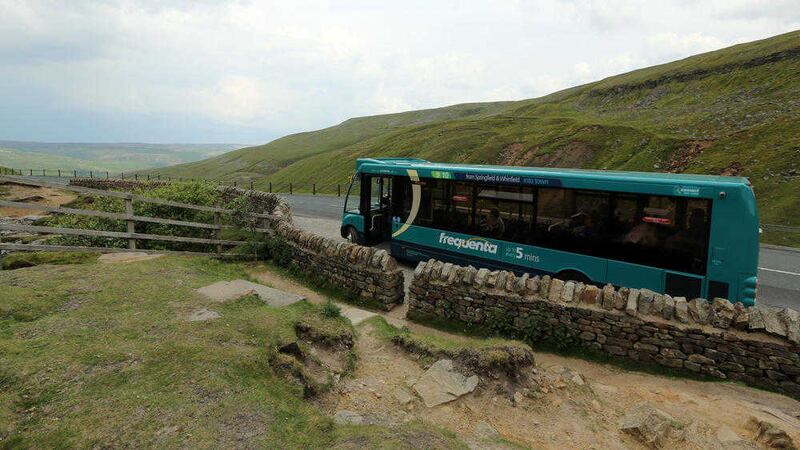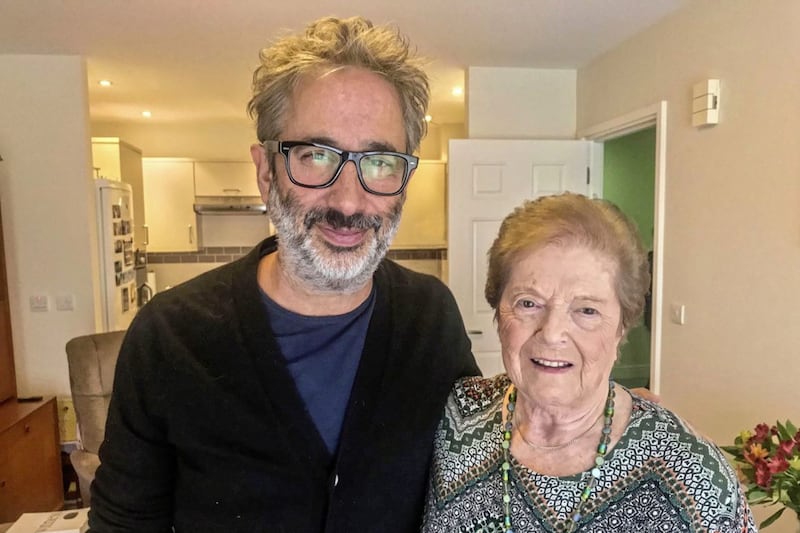All Aboard The Country Bus, BBC 4, Sunday at 8pm
There’s nothing very romantic about a bus.
Travel has long been one of the great staples of television– along with food and crime drama – but the mode of transport tends to be a bit more glamorous.
Michael Portillo is generally on a genteel train, Michael Palin on a dhow or some such and Billy Connolly on a motorbike.
‘All Aboard’ brought us an a two-hour, as-it-happened view from a public bus travelling its normal route through the Yorkshire Dales.
Filmed in real time, there is no narrator and information is provided by captions set into the landscape.
The BBC calls it ‘slow TV’ but critics will argue that television has simply run out of ideas.
That’s certainly what is argued by the new media, with Vice chief executive Shane Smith attacking British television last week
“We all know that a lot of media is derivative. We just make what has been successful before. The reason why all this chaos in media is happening is because the new audience, the new purchasing power, realises that vapid and vacuous s**t isn’t going to get us to where we need to go,” Smith, who heads a $5 billion media empire, told the Edinburgh Television Festival last week.
Other figures revealed at the conference appear to back this up, with evidence that the youth audience has abandoned television.
It is claimed the average age of BBC 1 and 2 viewers is 62. ITV’s average is 60, Channel 4 is 55 and Channel 5 – home to Big Brother – has an audience with an average age of 58.
Young, and even middle age people, it seems, have migrated to streaming services, YouTube and other digital content.
Smith, who is trying to attract attention to a new TV channel he is launching, says the solution is getting decision making out of the hands of the oldie executives.
“That stranglehold is finally being broken by a highly educated, ethnically diverse, global thinking, hard-to-reach generation. And media is having a hard time adapting to this rapid change.”
Smith may be a bit of an attention seeker, but it’s hard to disagree with him when the big offering from the BBC at the start of the autumn season are remakes of 80s sitcoms Are You Being Served? and Porridge.
**
New York: America’s Busiest City, BBC 2, Tuesday at 9pm
It’s all the fault of Springwatch.
Ten years ago, the BBC show charting the changing of the season became water cooler conversation and the era of multi-presenter live broadcasting was born.
The latest incarnation has seen Ade Adepitan, Antia Rani, Ant Anstead and Dan Snow sent to New York.
It made for reasonably interesting television, but it’s hardly the most radical programme idea.
Ultimately these programmes are about trying to surprise the audience with figures.
But in America’s Busiest City there were so many numbers it was like watching the lottery draw live.
There are 5.5 million commuters a day on the Staten Island Ferry and the New York subway, which has 469 stations.
Grand Central station has 200,000 commuters a day, some of whom consume 110 boxers of Oysters in the station’s famous restaurant.
The producers should have realised it was starting to go wrong when Anita Rani was doing her best fake surprise face when interviewing the head of lost property about the weird and wonderful things left behind.
That's 3,000 items a month and, in case you were wondering, a canoe.
Note to the BBC: Sending a reporter to the lost and found of a transport hub is what local newspapers do to the trainee in the silly season.









